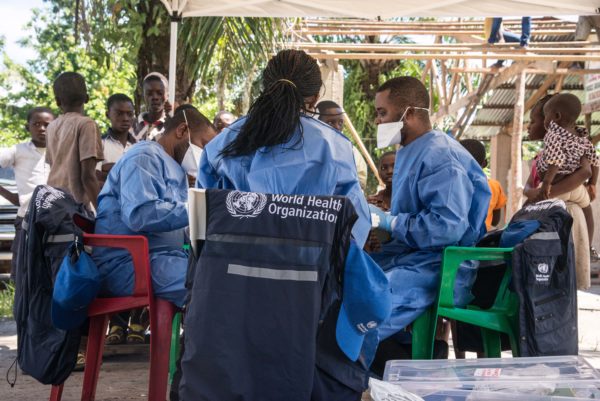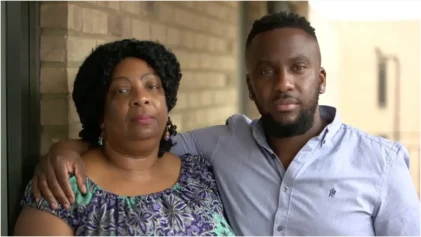The World Health Organization has announced it will investigate allegations made by more than fifty local women who say they were sexually exploited by workers in the Democratic Republic of Congo city of Beni.
According to an investigation published by The New Humanitarian and the Thomas Reuters Foundation last month, dozens of women reported that they were exploited by male international aid workers over a period of several years, from 2018 to March of this year during the 2020 Ebola outbreak.
In interviews, women said they were forced to have sex with men in exchange for jobs, and that their contracts would be terminated if they refused. Women reported being “ambushed” by men in hospitals, and locked in rooms by men who threatened to fire them if they did not comply.
One woman said she was forced to have sex with a man who identified himself as a WHO worker in order to get a job.

“I can’t think of someone who worked in the response who didn’t have to offer something,” said the woman, whose identity has not been released. Many women did not report their abuse because they feared they would lose their jobs.
The New Humanitarian and the Thomson Reuters Foundation said in Sept. 29 report that the agencies and NGOs they contacted had received few or no sex abuse claims against workers in the Congo.
During the investigation, women reported 30 separate instances of sexual exploitation by WHO workers.
A smaller number of women also said they were preyed upon by workers with the country’s Ministry of Health, World Vision, UNICEF, and ALIMA, a medical charity. These agencies have also announced internal inquiries and investigations, and many said there were procedures in place meant to prevent sexual abuse.
“Despite our best efforts, cases of sexual exploitation and abuse in DRC remain grossly underreported,” said Jean-Jacques Simon, a representative of UNICEF.
Many women said they were approached by men outside of main markets in Beni, a city at the heart of the recent Ebola outbreak, near job recruitment centers, or outside of hospitals.
The men, whom some of the women said came from countries such as Belgium, Burkina Faso, Canada, Côte d’Ivoire, France, and Guinea, often approached them after they found out they were not offered employment at a hospital.
One woman called the exchange a “passport to employment.” Two women said they became pregnant as a result of this sexual extortion, one by a man who said he was a WHO doctor.
Another woman said her abuser drove a vehicle marked with “World Health Organization.” The abuse often took place inside hotels that also served as hubs for NGO and U.N. workers.
In a statement, the WHO said it was “outraged” by the allegations of abuse, and that they would be “robustly investigated.”
“WHO has a zero tolerance policy with regard to sexual exploitation and abuse,” the statement said.


